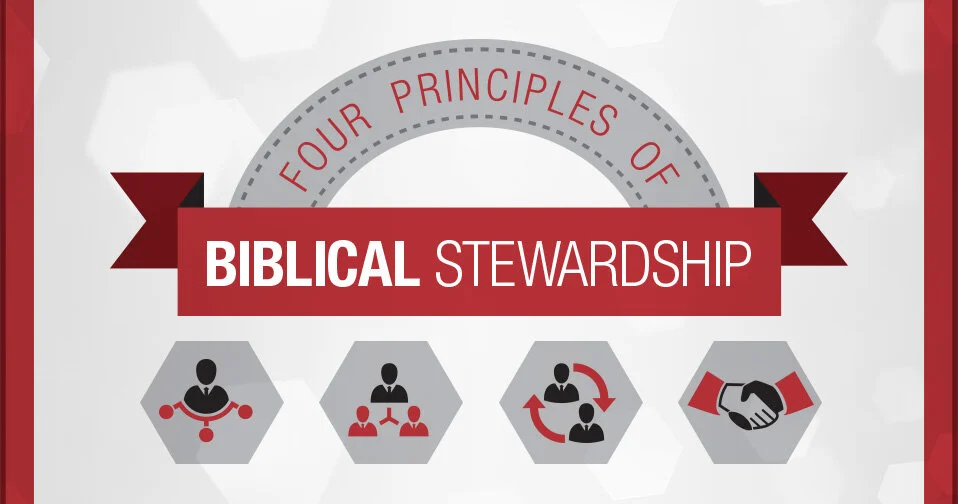Enterprise vs Entrepreneurial: What Kind of Leader are You?
This article was originally posted here by Steve Graves
— by Steve Graves
Let me ask you a few questions:
Do you think most organizations need an enterprise leader or an entrepreneurial leader?
Are you more wired as an enterprise leader or an entrepreneurial leader?
What kind of organization needs what kind of leader?
Do you think it is possible for the same person to be an enterprise leader and an entrepreneurial leader?
The Enterprise Leader
The enterprise leader’s worth grows in proportion to the size of the organization. The bigger the organizational footprint, the more necessary the enterprise leader. Or the more mature an organization is, the more crucial it is to have an enterprise leader.
The enterprise leader is the man or woman who runs projects, who builds things out and stays with the tasks until completion. The enterprise leader doesn’t just jump from one idea to the next shiny idea. They’re the executers of the vision. As General Russell Honore said, “Giving the order might be the easiest part. Execution is the real game.”
Usually enterprise leaders are leading teams of teams, which means they are always thinking cross-department and in terms of organizational alignment. General, Stanley McChrystal wrote a book about the “teams of teams” concept and talks about the process here.
As far as personality, enterprise leaders are planners who think in terms of cause and effect. They keep a risk profile well within measure. They’re not boring, but they make slower decisions because they think about the context and the consequences of decisions. Ready, aim, aim again, fire.
A 2004 MIT article defined enterprise leaders this way: “[They] make decisions with the entire corporation in mind. In other words, ‘enterprise leader’ is not a job title—the term represents a way of thinking and behaving.” They focus organizational attention; they live in the tension between strategy and culture.
Larger, more complex organizations need enterprise leaders. I’ve said for years that it takes processes and systems to scale any organization. Enterprise leaders immediately get that and know instinctively what to do.
Entrepreneurial Leaders
But as important as enterprise leaders are, you can’t lose the entrepreneurial leader and culture. That is important for small start-ups and huge companies alike. Seth Godin says big businesses need to think like small businesses. This is tough to do without entrepreneurs around.
Most of us have in mind what an entrepreneur is, and perhaps the stereotype isn’t that off. Entrepreneurs are agile, quick pivoters. They are resilient, and they start and stop easily. Passion is present for the enterprise leader, but it abounds for the entrepreneur and is a primary driver of action.
Innovation abounds as well. Entrepreneurial leaders are initiators, starters, and challengers, as this article from Entrepreneur (which ought to know) points out. Ready, fire, aim. Or sometimes just fire, fire, fire.
I’ve written elsewhere about three types of leaders. Entrepreneurs are the “launch the business” and “change the business” leaders. This is how entrepreneurs think, and they sometimes wonder why nobody else does.
Why You Need Both
Most successful organizations have both enterprise leaders and entrepreneur leaders. Google seems entrepreneurial, sure, but it has hundreds of enterprise leaders. Exxon Mobil may seem like a fixed behemoth of a company, but they have entrepreneurial leaders up and down the organizational ladder. Walmart is a beast. But in any department, you will find a particular concoction of enterprise leaders and entrepreneurial leaders.
Enterprise leaders organize the chaos in an organization. They take siloed departments and unify everyone around a common purpose. They see an exciting opportunity and question whether it’s a good pitch to swing at. They give customers a consistent experience. They streamline operations. Is your organization trending up? You need an enterprise leader to make sure you can keep up without burning out.
But enterprise leaders struggle to change the business. They don’t reinvent or anticipate future challenges very well. That’s where entrepreneurs lead.
Entrepreneurial leaders disrupt, motivate, pivot, run fast and break things. These are things that every organization—large or small—never grows out of needing. Is your organization trending down? You need an entrepreneur. Is it not even trending? You need an entrepreneur.
Which way do you lean? Most executives lean one way or the other. There are exceptions (Sam Walton comes to mind), but it’s rare.
Related articles
How did Jesus spend his last hours before the cross? He ensured His “Executive Leadership Team” had vision, clarity, and line of sight on essentials and prayed for their cross-functional unity!
Faith-based enterprises transforming economies intuitively makes sense but its potential has yet to be realised. Why is this the case?
Whether it’s in your culture alignment, marketing effectiveness, or simply in increased profitability, we’re dedicated to helping your business to reach new heights.
You may be surprised to learn that situation analyses including market reports and competitive assessments are not just modern-day inventions and practices endemic to the business world. They are not new to God. He designed them!
Are you more wired as an enterprise leader or an entrepreneurial leader? Read more on why both types of leaders are needed in most successful organizations.
As a Christian business owner, are you are attempting to integrate biblical principles into every aspect of your business? How about your retirement plan? Is it even possible to honor God through your 401(k) plan? If yes, how?
After working with literally thousands of leaders and companies, I’ve discovered there are three stages for any business or enterprise growth. Don’t think days and weeks; instead, think growth and maturation.
Early on in a start-up’s life, one must be prepared to iterate…a lot. To think you have got it right on the first try is naive. You don’t have it right. You will need to duck, dodge, and weave your way into the right business model and solution for your target customer. Enter the “good idea fairy.”
Have you ever looked up the definition of pivot? What if I shared with you that we as leaders are the “Pivotman/woman” for our organizations?
In a business world that prioritizes productivity, speed, and profits, Christians may feel like Monday through Friday belongs to the world while Sunday belongs to God. But Scripture beckons Christians toward a more holistic lifestyle. “Whatever you do,” Paul says in 1 Corinthians, “do it all to the glory of God.”
When we (C12 Group) first began to release information, resources and guidance on playing offense in regards to COVID-19 in February there were some reports of “what’s the big deal, it’s not effecting my city, business, industry.” Those delusions are quickly fading. As a global economy, human race, and universal Church everyone is and will be effected in one way or another.
“Creativity must be accompanied by a process to uncover and test the best ideas… With the surplus of good ideas, we knew we needed a process to help us systematically prove out the ones that would solve real problems, and help us avoid expending valuable resources and talent with nothing to show for or learn from at the end.” In this video, we hear from Kevin Miller, C12 Vice President of Marketing, who describes how C12 developed its Innovation Sequence.
This article was from a collection of White Papers compiled for attendees of the CEF’s 2019 Global Event. Today, we share the Morales family’s White Paper on their company FXM — “Hard work in God’s name, diligence, honesty, and a deep knowledge of “Who’s who” in the Mexican food industry has meant the world for our success as a company. ”
Chris Horst and Claire Stewart share their Christianity Today article “The Christian Roots of the Fair Trade Movement” with us. Beneath the buzzwords around sustainability, transparency, and ethical sourcing we find something far more important than consumerism: Christ-centered love for our neighbors.
What does stewardship look like in our lives today? What does it look like in our businesses? Unfortunately, many Christians today only associate the idea of stewardship with sermons, church budgets and building programs. The idea of biblical stewardship is much more expansive. It is where the concepts of faith, work, and economics intersect.
C12 Member, Todd Stewart, and CEO of Gulf Winds Intl, decided a 50% employee engagement rate was not acceptable within his freight and shipping company. He and his Key Player executive team purposed to engage each employee by listening to their needs and delivering exceptional employee care.
Originally published by WRAL TechWire — Bandwidth , a Triangle-born provider of communications-related services that has grown into a venture with global reach, might be riding high at the moment after recently hitting the $2 billion valuation mark. But as its founder and CEO David Morken can attest, it hasn’t always been smooth sailing. He credits one thing for getting him through: his Christian faith.
The Lion's Den, with their conferences in Dallas and Birmingham, have been partners in the Faith Driven Entrepreneur movement for more than 5 years. Think "Shark Tank" meets the Kingdom of God and you have a sense as to what happens at these events. This video is about building your business for God and creating a culture that is Christ based.
From time to time we leave the world of faith driven content to highlight a piece of wisdom from a secular author that has inordinate wisdom and application for you, the faith driven entrepreneur. Enjoy this great blog post from Marc Andreesen!
Originally published by Fast Company— When entrepreneur Chris Chuang moved to Raleigh, North Carolina, for a job, he expected to be there for two or three years at the most. Instead, he wound up staying and built a successful tech company.
This article was from a collection of whitepapers compiled for attendees of the CEF’s 2018 Global Event. We share Darin’s whitepaper in anticipation of 2019 CEF whitepapers launching soon! Read Darin Owen’s view on how to start, build, and grow prosperous companies.
“There are other ways of writing about the stages of business development. I’ve done it myself, but I find quantifying it in this way—0 to 1, 1 to 5, and 5 to 50—makes sense to a lot of my clients. It works in any industry, any style of corporate culture, and every market I can think of.”
Originally published by Fast Company— Corrie Conrad, Head of Social Impact at Sephora, shares about Sephora Stands Together (financial support to Sephora employees), Classes For Confidence (workshops for women trying to reenter the workforce) and Sephora Accelerate, its startup incubator.
C12 shares their video on Gary Archer’s story. He shares on the impact of working with a workplace ministry group that encourages and challenges you in your walk with the Lord and how it integrates with your business.
We understand that we are created in God's image, that he was a creator and a designer and therefore we are the same. As entrepreneurs we inherently get this at some level, but I think that we are well served by tapping in to this Biblical truth regularly as we look for an encouragement in our work. No one does a better job of this, in my opinion, than Jerry Bowyer.
Originally published by FORBES — The Millennials, who were born into the age of information, have been described as lazy, narcissistic, entitled and unable to stay in one job, but also as the most purpose-driven and potentially the most entrepreneurial of all previous generations. Why?
Today, we share a high-caliber podcast series from NPR! How I Built This with Guy Raz dives into the stories behind some of the world's best known companies & movements and the innovators, entrepreneurs and idealists leading them.
Jon Kontz shares his insights on hiring the right people (as individuals and as part of a team) using tools like The Team Dimensions Profile 2.0 but also by simply knowing the momentum and scarcity of resources based on the size of your own company.
——
[ Photo by Victor Freitas on Unsplash ]





























In Pierce Brantley's research, he's discovered that many well-meaning Christian business owners will get stuck at various stages of business without realizing it.